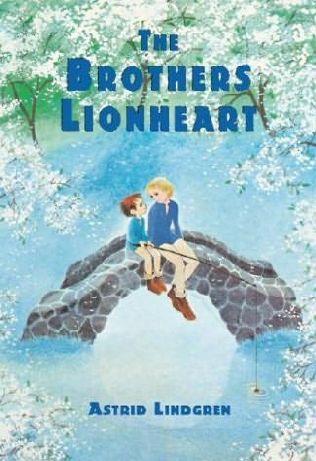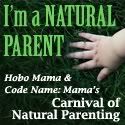This past month, as I was wading through a most unhappy novel (The Girl With the Dragon Tattoo),* I found occasional light-hearted relief from that book's heavy themes with its occasional references to beloved children's author Astrid Lindgren (of Pippi fame). Lindren had nothing at all to do with the plot of the novel (thank goodness!), but I found the mere mention of her name uplifting. Once I finished with the novel and needed something jolly and quick to read, I scooped up my childhood copy of Pippi Longstocking and devoured its happiness immediately. A quick jump on the library website revealed that Lindgren is a prolific author and there are several translations of her books in our local system. I checked-out one at random.
I was looking forward to a break from the fear, torture and death that Dragon Tattoo was all about. Coming off of Pippi I figured that all of Lindgren's books would mean happy, bubbly, nonsensical fun. Ummm... turns out The Brother's Lionheart, which is the book I ordered from the library, is NOT that book.
I find it very strange that the cover art for the edition I borrowed from our library, with its rugged and ominous landscape and dreadful monsters, is practically no where to be found online. (I did eventually find one photo: you can see it here on Amazon). Instead, the only book cover I could easily find is this one below.

The two are quite different! The first reflects (accurately) that the story is an adventure (or, a "saga" as the translation puts it), but the more popular cover would make a reader assume it's a peaceful storybook.Which it is not.
Without giving too much away (you can go to
Wikipedia to read spoilers) I can tell you that accidental deaths of children, a child born with a crippling and degenerative disease, transfiguration of the soul/reincarnation, and suicide are all essential parts of this novel. Wow!
I think it's safe to say that the book's themes are far heavier than are most written for young readers and when you think about when Lindgren published this novel (the 70's) I'm amazed by both her faith in children (faith that they were ready for such a tale) and by the audacity of her publishers (they must have received some flack for this). After finishing The Brothers I imagined that no children had ever really "gotten" this read, but after I poked around on
http://www.goodreads.com/ I found many reviews from readers claiming this was their favorite book when they were little. So, okay. Maybe at 33 I've already forgotten what it was like to be a young reader, excited to be trusted with adult themes. Maybe I forget how ready children can be for big ideas. I don't know.
I will not be rushing out to add this book to our home library, but if Uli picks it up in ten years, at least I'll be more prepared for the questions she might ask. It's intense, but interesting. And if the Goodreads folk are speaking the truth, it maybe be an essential read for the pre-teen. (I don't get that, but I'm no longer a pre-teen so there's probably a lot I don't remember about that age.)
*(Note: if you liked Brad Pitt's film Seven you'll enjoy the book. If you felt haunted and or mentally scarred by that movie avoid Dragon Tattoo at all costs; both stories evoke similar feelings in the reader/viewer.)












